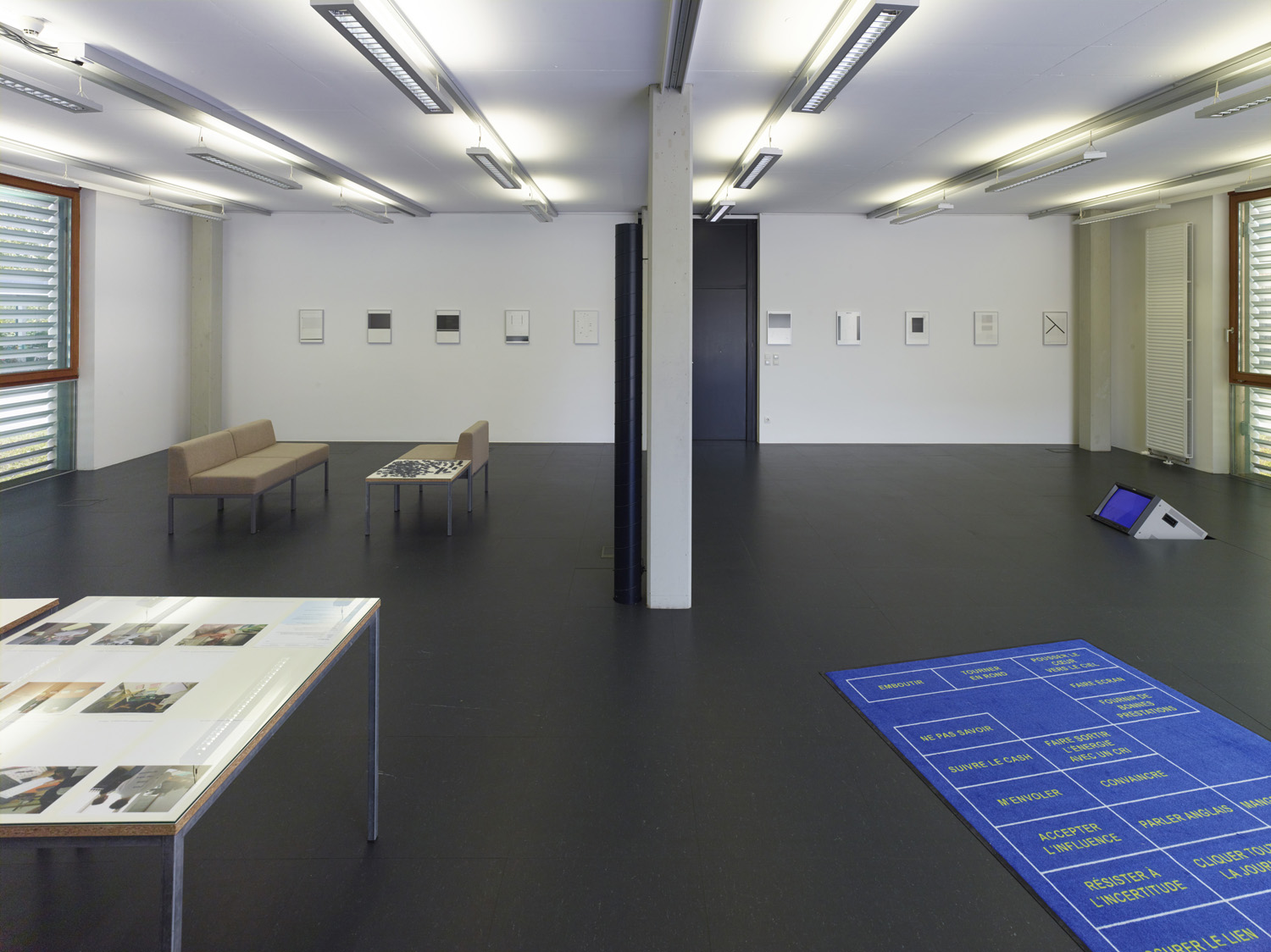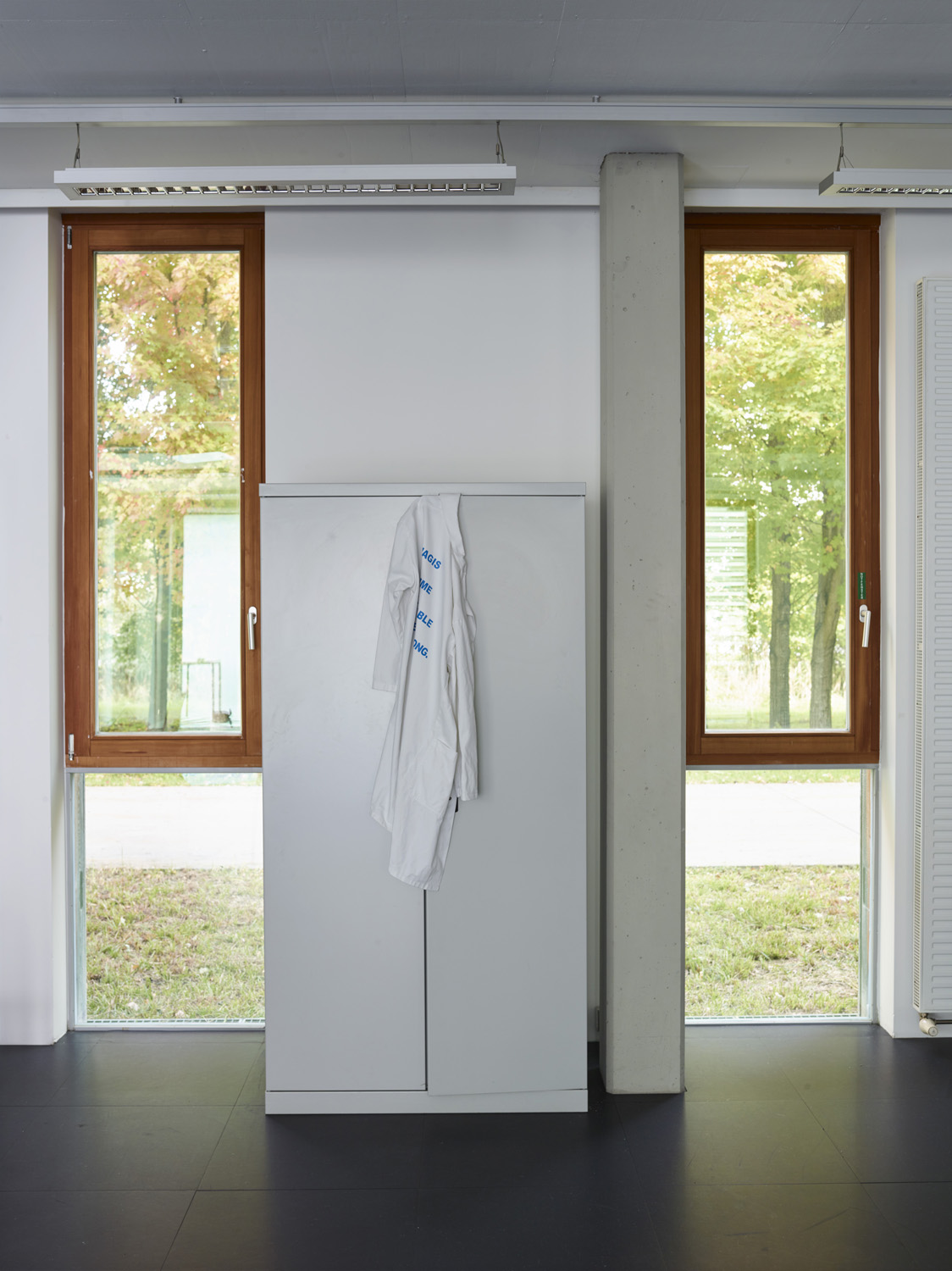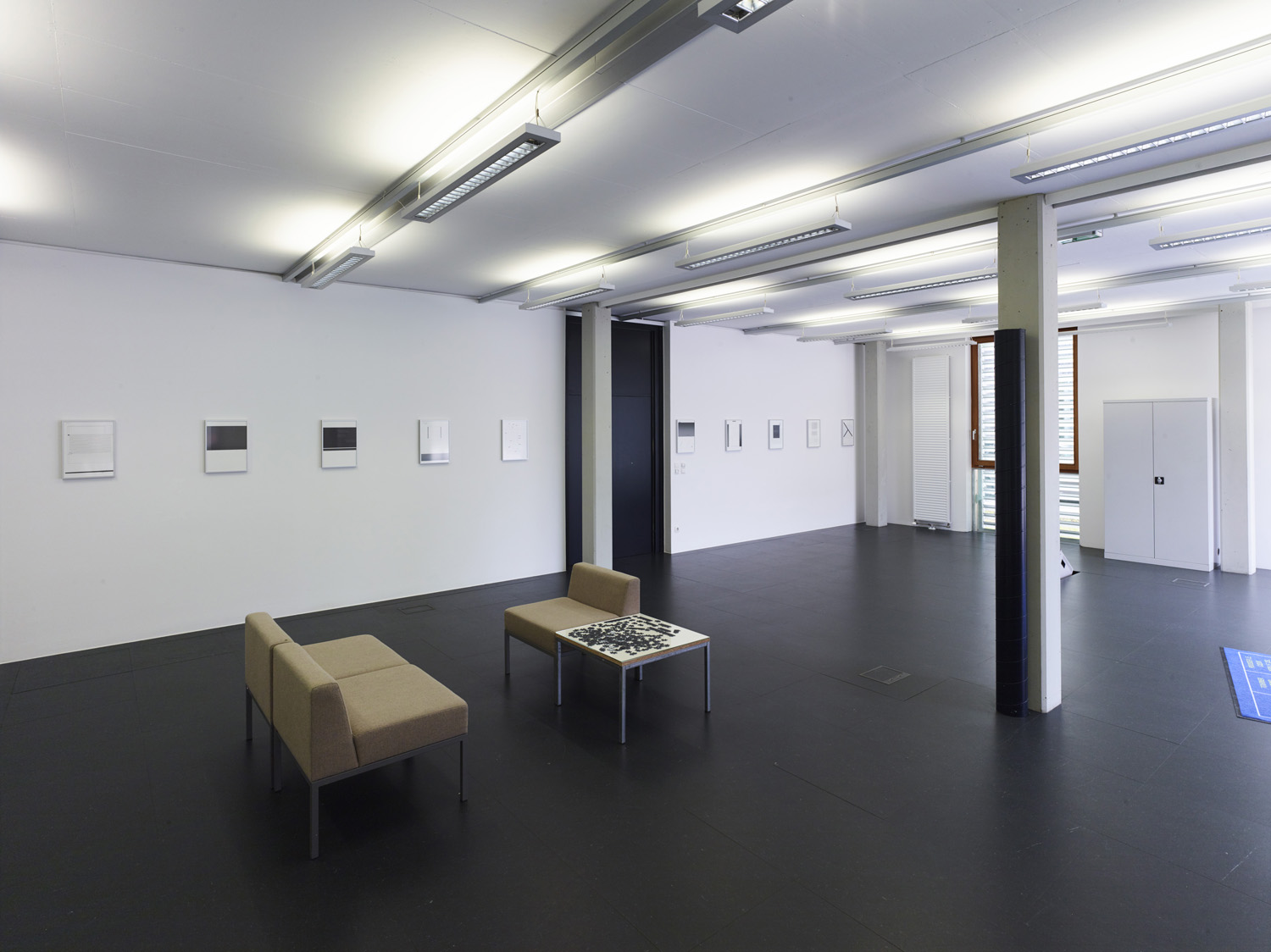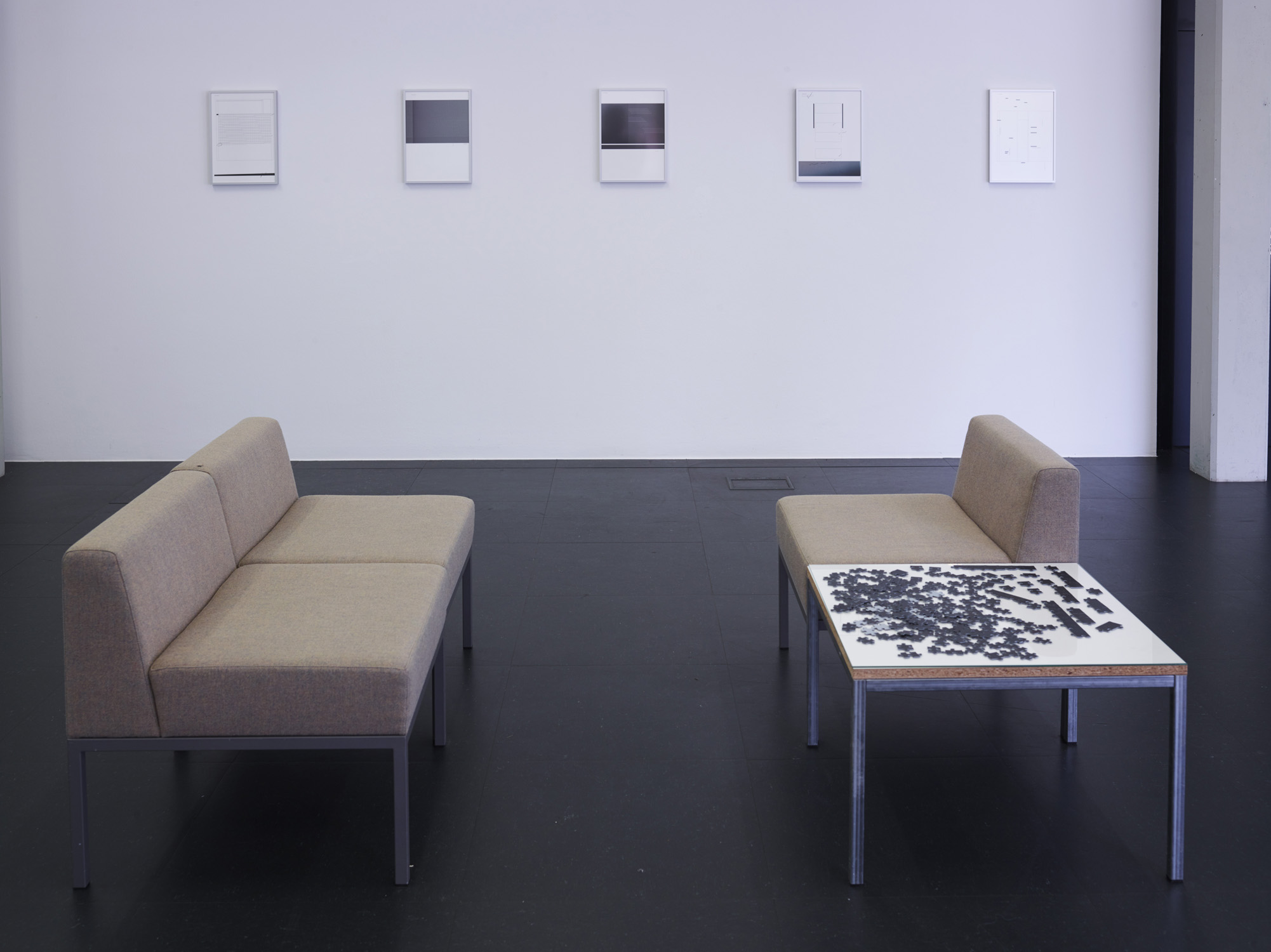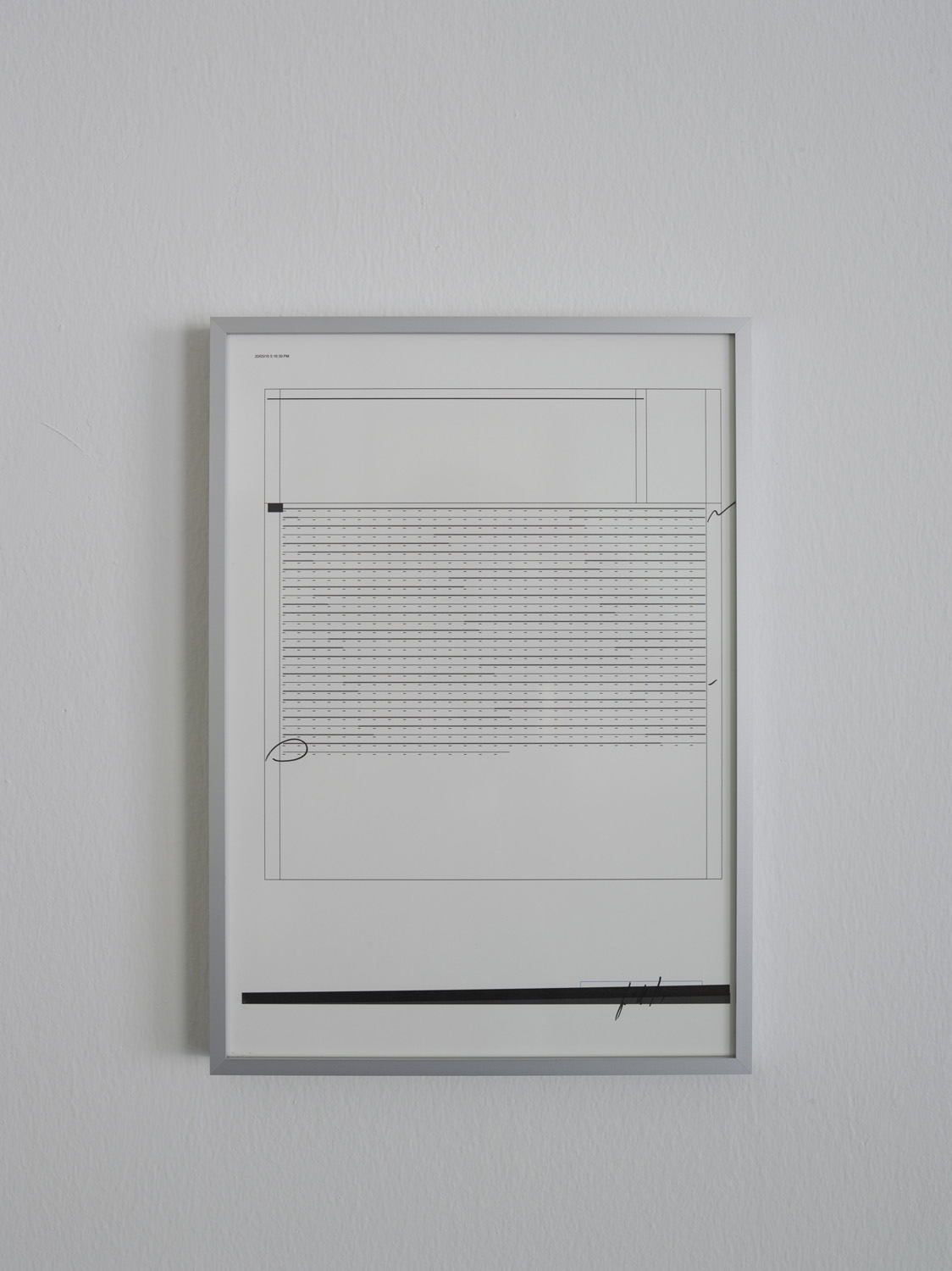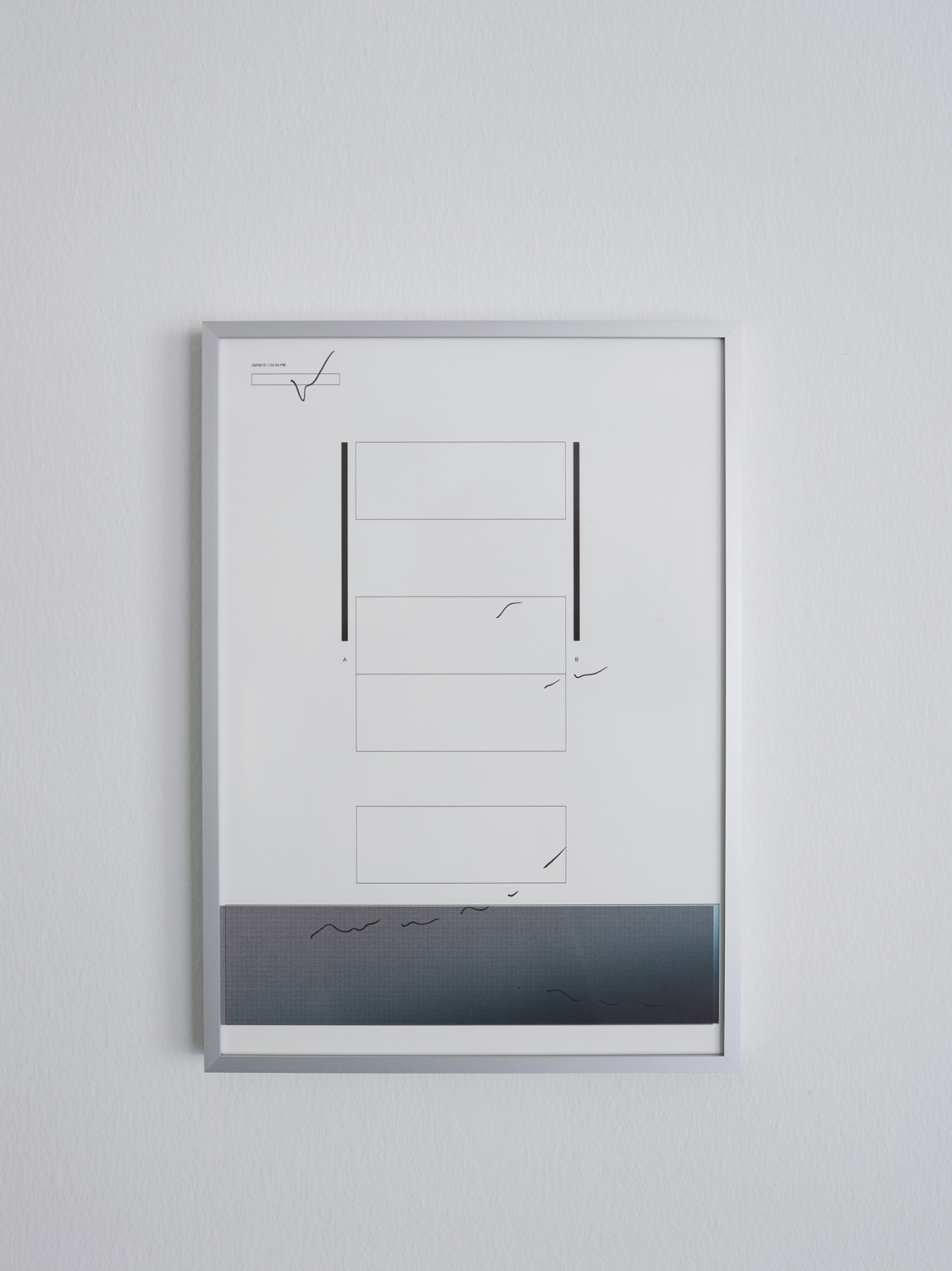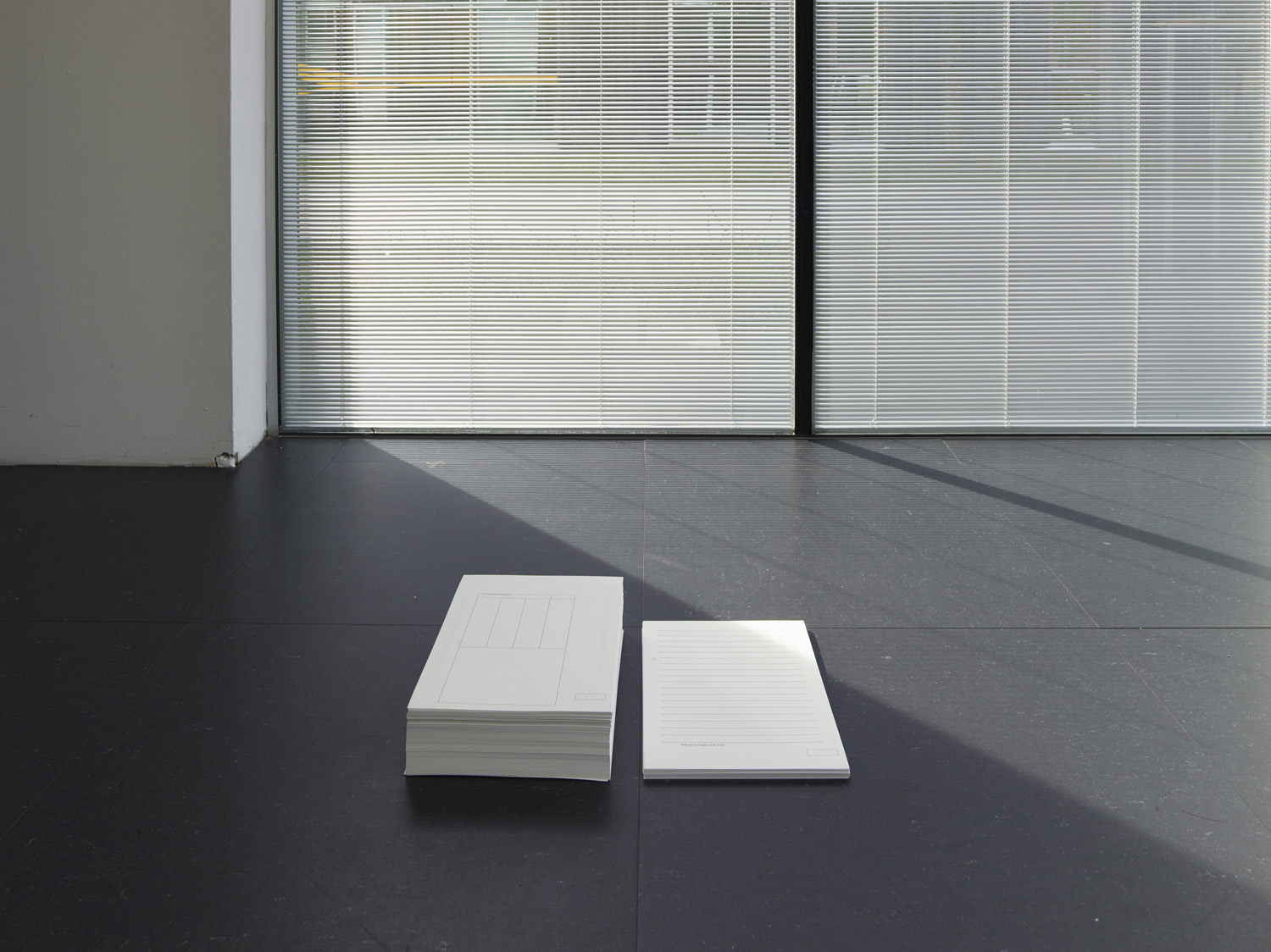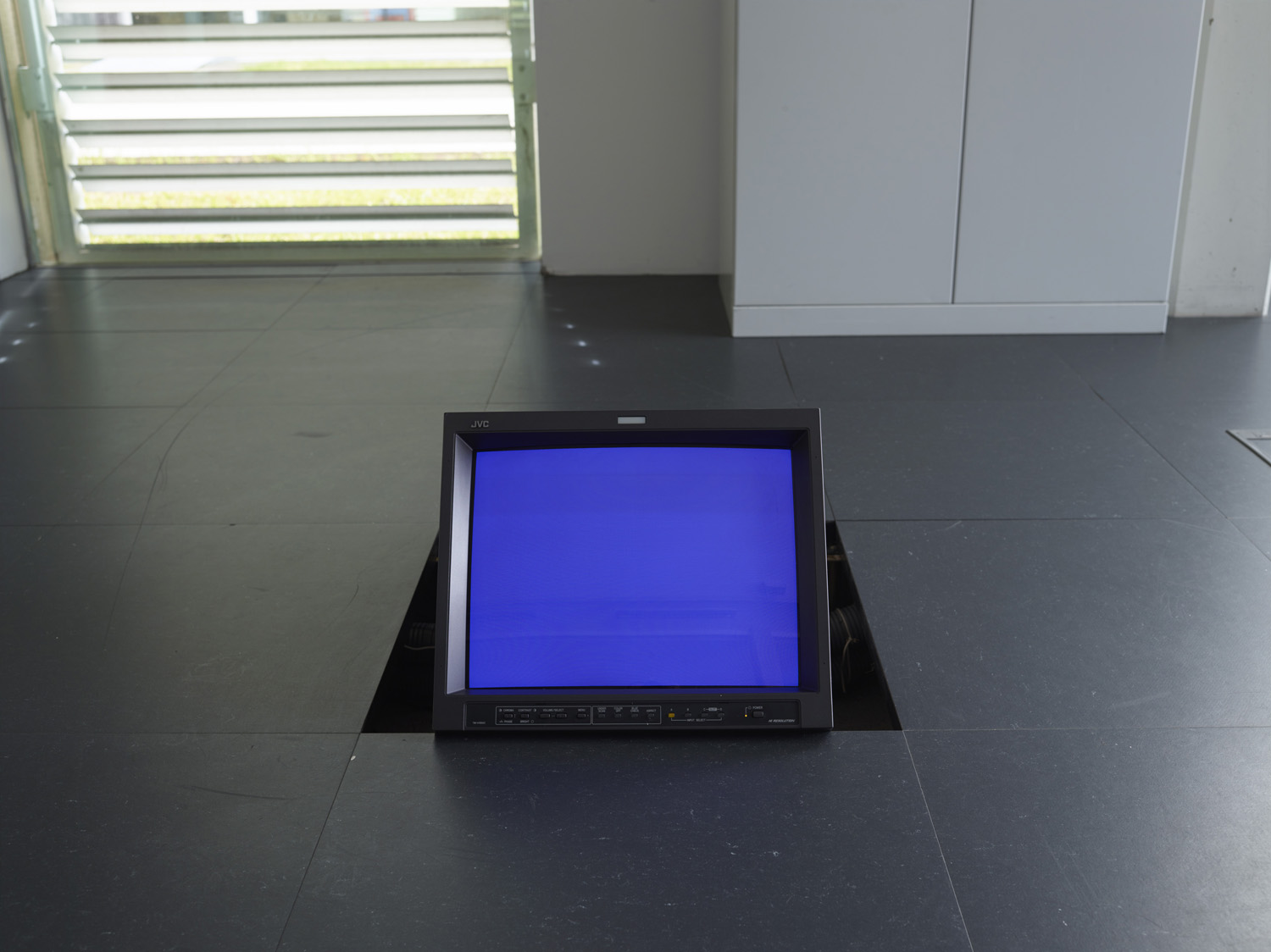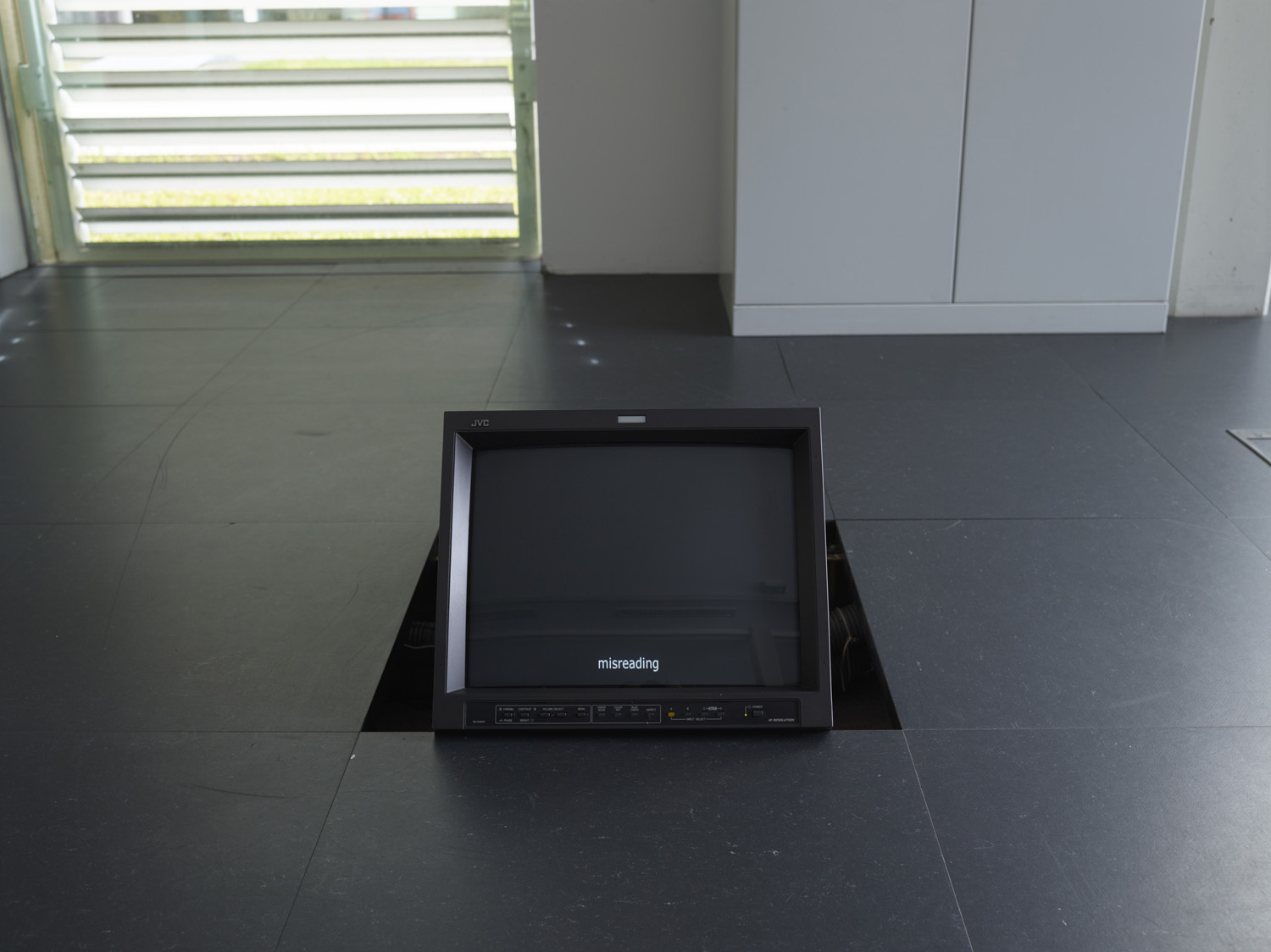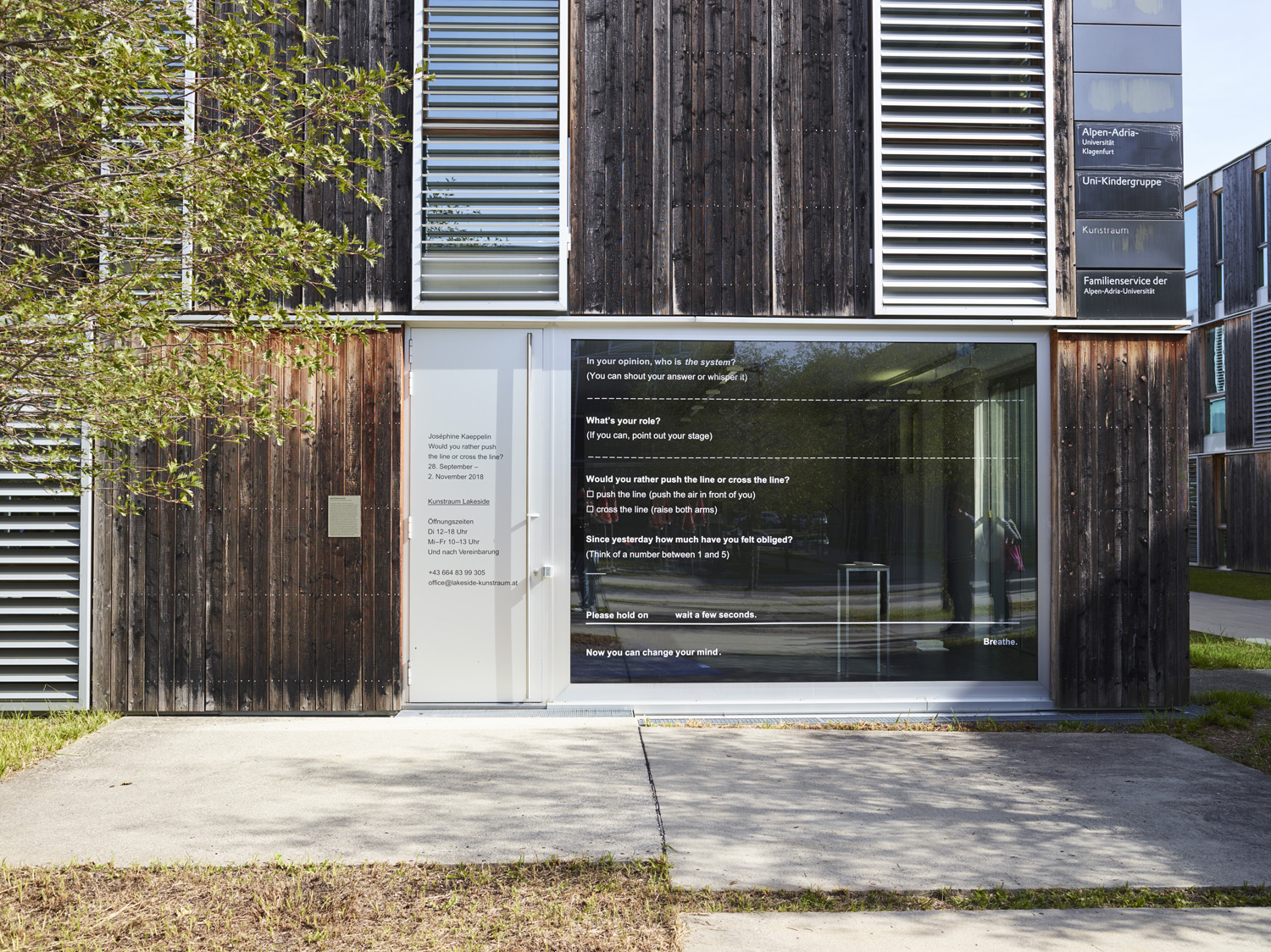Opening, September 27, 2018, 7 pm
Exhibition, September 28 – November 2, 2018
Systems and taxonomies, programmed environments and standards, coupled with the ubiquitous phenomenon of automation are the driving forces of today’s society that Josephine Kaeppelin takes as the point of departure for her artistic practice. She starts by researching technological, social, and visual work contexts and then applies graphic means and interventionist methods to investigate what role humans assume in the interplay between machines, ordering principles, and control mechanisms. What strategies do we use to adapt ourselves to systems, and what effect do these systems then have on us? What gestures have we acquired to help us deal with automated processes, and how do these processes determine our behavior? Do the systems that let us interact with machines reveal certain methods and processes for producing meaning?
Working at the crossroads between analytical research and visual art, with a focus on drawing, print products, and what she describes as “participatory displays,” Kaeppelin calls herself an “intellectual and graphic service provider.” By utilizing means such as default settings, predefined styles, and the bugs and/or smooth perfection of conventional office software to generate her image material and other artistic forms, the artist undermines not only the intended purpose of these machines but also the art system itself. The formal language of the working world and the rigor of office aesthetics go into the construction of Kaeppelin’s participatory installations. Through appropriation, mimicry, and over-affirmation, she subverts the neoliberal practices of the self and exploits them for her own creations—without ever losing sight of the human behind the machine.
In the exhibition Would you rather push the line or cross the line?, conceived by Joséphine Kaeppelin especially for Kunstraum Lakeside, the artist summarizes a long-term research project she developed in conjunction with the staff of a printing ink maker named Siegwerk in Annemasse, France. For several months, Kaeppelin intervened in the everyday working lives of the employees and workers with conversations, games, questionnaires, and participatory settings, carefully documenting this open-ended process. “By working with the Siegwerk staff,” says the artist of her intervention in the operational contexts, “I wanted to find ways to disrupt and interrupt people in their routine in order to create a necessary pause to reflect on ourselves, our human condition, and more precisely on the socio-professional and technical structures in which we live and work.”
Kaeppelin uses certain tools that create momentary disruptions, including a wheel of fortune (La roue de la fortune, 2018), a game with wooden blocks (Que fais-tu dans la vie ?, 2018), and an absurd puzzle (puzzle noir, 2012), to investigate people’s state of mind in the respective context: What rules and requirements are they dealing with right now? Do we have any choice about what we do, and, if so, do we take advantage of the potential that’s there? Kaeppelin gives the people she works with a chance to step back and think, so that in a self-reflexive loop they can come up with their very own answers to such questions. The stone carver Roger Gorrindo, for example, had to rely on his own ideas when the artist asked him in 2014 to put the “inner value” of his work into words by adding his own reflections to the well-known statement “Made with…” A few weeks after being assigned the task, the stone carver answered with a hand-engraved piece of limestone inscribed “Made with poïein.” The Greek verb, which means “to make, create,” conveys the idea of a gesture made of one’s own free will. “The freedom of action, the will to make,” is how the artist formulates the result of the process she initiated.
Joséphine Kaeppelin describes herself as an “intellectual and graphic service provider”—a status that extends far beyond a mere linking of her existing graphic works with her interventions in working contexts. As a service provider, she can also create an independent structure, a working context that can deal with the requirements and conditions that the artist investigates using the very same means and thus on equal terms.
Joséphine Kaeppelin (b. 1985 in France) lives and works in Brussels.
www.josephinekaeppelin.com

